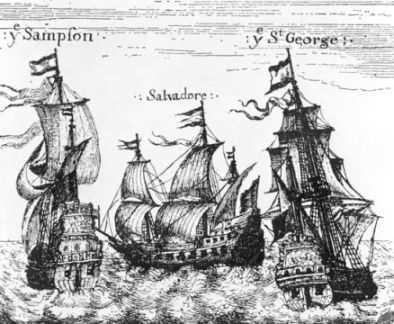*Navigation Acts*

The financial weight of the Navigation Acts on the American provinces has been a subject of level-headed discussion both among the eighteenth-century homesteaders and among researchers in the twentieth century. The open deliberation has for the most part been about whether the monetary weight of the Navigation Acts was adequate to warrant the American Revolution (1775– 1783).
The most vital Navigation Acts were authorized in 1651, 1660, 1663, 1673 and 1696. They were articulations of the financial teaching of mercantilism. This convention stated that outside exchange was a type of monetary fighting with other exchanging countries and that the champ in this war would be the country that amassed the most gold and silver. The part of states in the mercantilist framework was subordinate to the "motherland." They were to outfit staple foodstuffs and crude materials to the homeland and also a business opportunity for the completed products of the homeland. The most essential Navigation Acts of seventeenth-century England announced that exclusive pilgrim or English boats could exchange with the states; that specific "listed" pioneer items could be dispatched just to England; that American fares to Europe needed to go through English ports, to be burdened; and that frontier merchandise sent to England couldn't contend with English products.
A portion of these demonstrations hurt frontier exchange. Particularly in the grain-developing center states and the Chesapeake, there was a shock at the way that the provinces could exchange their fundamental fare staples just with England. They would have favored more extensive market openings. What's more, given the numerous bays and bays on the eastern seaboard, American dealers accepted the open door to carry merchandise and to exchange with whoever would give the best cost.
Consequently, the Navigation Acts exhibited the two advantages and weights to the American states. New England profited from the restraining infrastructure in the shipbuilding and transportation ventures. In view of the vicinity to the woodlands of upper New England, Massachusetts shipyards as of now delighted in bring down expenses than those in Britain and delivered numerous boats for British shippers. Once assembled and on the water, the pioneer ships fared well in the magnificent exchange, particularly on courses between New England and the West Indies. American groups could be paid and expelled at home ports while British boats at similar ports were compelled to endure the cost of much of the time sit out of gear deckhands.
The early many years of the eighteenth century were a time of "kindhearted disregard" of pilgrim exchange by Great Britain. The English government was engrossed with a progression of wars with France that became out of business rivalry. Simply after the finish of the costly and depleting "Seven Years' War" (1756– 1763) , referred to in the states as the "French and Indian Wars" (1754– 1763) did the English Parliament start to reconsider the exchanging approach with its provinces.
After 1763 the English Parliament chose to constrain the states to pay their offer of keeping up the British armada which, in their view, invested quite a bit of its energy guarding the settlements. After the war British approach moved from a free business framework to a firmly managed royal one. The new expenses that they endeavored to force—the sugar charge, the stamp assess, and the duty on tea—turned into the focal point of dispute between the states and the British experts.
Whig students of history, for example, George Bancroft (1800– 1891) and Progressive antiquarians, for example, Charles Beard contended that the monetary weight of the Navigation Acts was extensive. These students of history point to the focal issue of obligation. Due to the endless irregularity in frontier exchange originating from the Navigation Acts, they scraped under the provincial administration. Indeed, even well-off states like Virginia and Maryland veiled tremendous obligations. Lesser grower acquired from bigger ones, who thus were interminably obligated to British "components" (dealers). The Progressive antiquarian Charles Beard presumed that it is "for the most part known the obligations because of British shippers and other private subjects constituted one of the effective aims prompting Revolution."
Later history specialists have reconsidered the information and inferred that things were not too terrible. Robert Paul Thomas assessed that the gross weight of the authoritative realm and the Navigation Acts on imports and fares was $3.1 million out of 1770 however that the figure must be said something light of the advantages of enrollment in the domain. Thomas assessed that the weight was around $1.24 per individual or two percent of a pioneer for every capita wage. Be that as it may when this was set against the advantages and particularly military and maritime insurance ($1.775 million by and large, and somewhat less than $1 per individual) the net expenses were short of what one million dollars, or around 41 pennies for every individual in 1770. For Thomas and in addition a developing number of researchers after him, the Navigation Acts represented no genuine budgetary hardship to the pilgrims. These researchers thought about that if these were considered weights they had been put on political and ideological, not financial, scales.
Cheers!